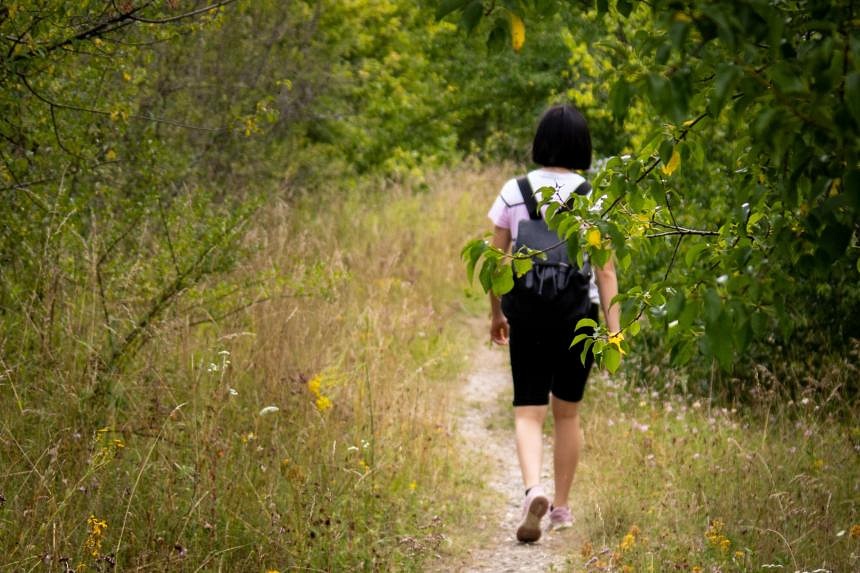Parents, quality rest these holidays could just be the boost your kids need
Extra tuition, enrichment activities are all very well, but studies show doing nothing does something good to their brains.

When was the last time your school-going child had absolutely nothing to do?
Chances are, you can’t remember.
With the daily routine of school, co-curricular activities (CCAs), tuition and enrichment classes, the schedule of the modern Singaporean child can sometimes seem more packed than that of the average working adult. Particularly in today’s digital age, learning all sorts of skills – from chess to coding to art to ukulele – is just a few clicks away.
=======
Then there is the pressure of DSA (Direct School Admission for secondary schools), which begins to hit home when the child is in the upper primary levels, as they need to prepare their portfolios and clock their achievements by the time Primary 6 comes around.
For those pupils with the PSLE on the horizon, the parents understandably see the holidays as a chance to prepare for the following academic year with extra tuition so their child doesn’t lose out or can stay ahead.
Others have started scouting around for interesting and enriching activities for their children during the long break starting on Nov 18.
While picking from an endless buffet of activities can feel exciting, especially since many of us did not get such opportunities growing up, is it actually what our children need? What about giving them time to just be kids, or to just hang out relaxing so they are mentally ready for the challenges of school when they start again?
Furthermore, the ubiquity of screens has added a new dimension, and complexity, to planning holiday activities for children. Let’s be clear – screen time does not equate to downtime.
More study, enrichment activities, online fun learning, holiday camps – or relaxing in order to recharge? For parents wondering what’s the best use of the school holidays, I say prioritise quality rest.
Rest matters for their brain matter
When they are in school, our children’s brains are constantly busy with learning, gathering information and practising what they’ve learnt. What happens when they actually slow down?
=====
In their book The Self-Driven Child, William Stixrud and Ned Johnson highlight how children today are being denied a sense of control over their lives. They argue for a radical downtime, which means “nothing purposeful, nothing that requires highly focused thought”.
Such an unfocused downtime activates the brain’s default mode network, which has been found to be critical for a healthy brain by neuroscientist Marcus Raichle in the mid-1990s. “When your default mode network is active, you think about yourself, about your past and future, and about problems that need to be resolved, all of which are crucial for developing a sense of self,” Stixrud and Johnson write.
Another benefit of downtime is that it reduces stress. Without having to think about schoolwork and other obligations, kids get to do whatever they enjoy or feel like doing in the moment.
Sophia Huang, Singaporean author of the Nature Playtime series of children’s picture books and mother of three children aged between four and 10, said, “Boredom breeds creativity and bonding. It’s good to carve out intentional times for children to rest and be bored during the holidays because that’s when they get creative, reconnect with their siblings and explore new ideas.”
Ms Pamela Tan, mother of three teenagers, agreed that free and unstructured play time encourages creativity – “provided you can let the kids stay away from screens, or supervise their screen time”.
“They shouldn’t be allowed unlimited unsupervised Internet access,” she cautioned.
“I know some parents who cannot afford to take leave and spend time with their kids, and would rather fill their kids’ schedule with enrichment classes so that they won’t be on their phones the whole holiday,” she added.
And as much as we want our children to have zero to little screen time, perhaps a better – and less frustrating – way of approaching this is to ask, “What do we really value as a family?” and “How do we say yes to these things more often?”
For example, if we value getting out into nature, we could get our children to mark down on the family calendar the days that we could head outdoors, and to research new parks or gardens that we could explore.
Better yet, get them to plan the entire outing, and you can be sure they’ll include a nice treat at the end of it!
This encourages our children to take charge of their lives, rather than be passive consumers.
What do they do when they do nothing?
You might be wondering if downtime is a waste of time, but according to US psychology professor Kathy Hirsh-Pasek, it’s “extremely productive and essential”. Adds the co-author of Einstein Never Used Flashcards: How Our Children Really Learn – And Why They Need to Play More And Memorize Less: “By making children dependent on others to schedule and entertain them, we deprive them of the pleasure of creating their own games and the sense of mastery and independence they will need to enjoy running their own lives.”
However, if your child is not used to having copious amounts of downtime, you may need to downshift gently. Start by introducing a family digital detox one weekend afternoon, and help your child think of some things that they would like to do.
To ease them off their gaming boxes and other devices, one workaround is to intentionally schedule family and social time into your holiday calendar. I find that when my children have playmates around, their tendency to reach for the screens is reduced. And even if they do end up playing games on the Nintendo Switch, it still counts as social time as they’re talking, negotiating, teasing and laughing through it all.
Another workaround is to ensure that we pick high-quality screen time. As Ms Tan advised, “Try to influence your kids from an early age to spend their screen time wisely, on more productive pursuits such as learning a skill, researching up on a topic, or watching documentaries.”
Let them take the lead
More young people in Singapore are experiencing some form of mental health challenges, with a recent study saying that about one in three young people reported experiencing mental health symptoms. Perhaps what they need is good, quality rest and time to recharge. By doing so, they will have more chances to discover their own likes and dislikes, strengths and weaknesses, and to practise some level of autonomy.
Don’t get me wrong – I’m not suggesting that there is no space for skills learning or academic practice in the holidays, or that we must avoid them like a plague.
Also, if parents are busy and have few alternative caregivers to tap, it makes sense to pay for some holiday camps, rather than leave children to their own devices, literally.
Holiday planning is such a delicate balancing act. Too much empty time may lead to an over-reliance on gadgets or bingeing on cartoons, while too little could lead to a frazzled and frustrated child.
The key is perhaps to find a balance that fits our unique family situations. And to guide us in our planning, let’s take a leaf from the 80-20 principle, which posits that 80 per cent of the results we want is derived from 20 per cent of our actions.
In other words, if we want our children to feel happy, rested, and well-balanced, it may take just a small shift in our thinking and planning – to explore questions such as “What does my child really enjoy?” or “What lights their spark?” and just making space on their calendar so more of these can happen.
Hitting pause and ramping up rest in our children’s hectic lives is a critical area that promises payback. Maybe not so much in terms of tangible skills, like public speaking, but surely in terms of well-being and self-awareness.
It also ensures that when they enter the new year, they will be recharged and ready to go.
And hopefully, they will not forget to claim the power of rest for themselves as adults too.
- June Yong is a mother of three who used to blog at MamaWearPapaShirt.
Join ST's Telegram channel and get the latest breaking news delivered to you.









No comments:
Post a Comment